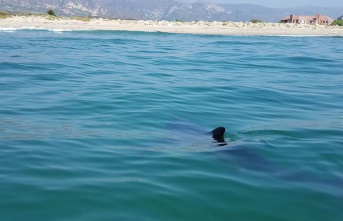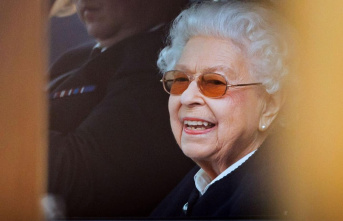The conditions demanded by Hungary to accept an embargo on Russian oil make a quick agreement between the Twenty-Seven unlikely and paralyze their desire to cut off financing for the war led by Vladimir Putin in Ukraine.
• Read also: [LIVE] 79th day of war in Ukraine: here are all the latest developments
• Read also: Ukraine: first trial for war crimes will begin on May 18 in Kyiv
• Read also: Disarray in Moscow
The head of European diplomacy, the Spaniard Josep Borrell, remains convinced that this agreement will be reached.
“We need this agreement, and we will have it,” he assured Friday after a G7 meeting in Germany.
“If there is no agreement at ambassadorial level, I will give a new political impetus on Monday at the meeting of foreign ministers in Brussels,” he announced.
Hungary is currently refusing this sixth package of sanctions proposed by Ursula von der Leyen, for lack of guarantees on the maintenance of its supply.
"We told the President of the Commission that her proposal creates a problem for us and that we cannot accept it, unless she offers us a solution", underlined the head of Hungarian diplomacy Peter Szijjarto, in an interview with the Spanish daily El Pais.
Prime Minister Viktor Orban explained this to Ursula von der Leyen during their working dinner on May 9 in Budapest and during his meeting with French President Emmanuel Macron, whose country chairs the Council of the EU.
The Commission is working on “concrete solutions”, assured its spokespersons.
A landlocked country, without access to the sea, Hungary depends on the oil brought from Russia by the Druzhba pipeline.
The Hungarian government is asking for a derogation of at least four years before cutting itself off from Russia and nearly 800 million euros in European funding to adapt its refineries and increase the capacity of the Adria pipeline which comes from Croatia, indicated Peter Szijjarto.
Slovakia, the Czech Republic, Bulgaria and even Croatia, very reserved about an embargo, are hiding behind Hungary, according to a European official.
The sanction must be gradual with a halt to crude imports within six months and refined products by the end of 2022.
A two-year derogation proposed to Hungary, Slovakia and the Czech Republic is deemed insufficient by Budapest and the negotiations conducted for ten days have still not been successful.
But the idea of splitting the sixth package which also includes sanctions for the banking sector and the inclusion of new personalities on the EU blacklist is rejected, assured two European diplomats on Friday.
Sanctions without an embargo on Russian oil would break the unity of the EU, judged the head of Ukrainian diplomacy Dmytro Kouleba.
'No trust in the EU'
Hungary suggests excluding pipeline deliveries. They represent a small part of European purchases: 0.7 million barrels per day out of 2.8 million.
But this renunciation is also refused, because "it would call into question the unity and solidarity of the 27 in sharing the burden of the embargo", argued another European diplomat.
“Viktor Orban wants guarantees on European funding and on the security of supplies to be able to say to the Hungarians: do not worry”, he underlined.
The Hungarian leader fears an increase in the oil bill, because he may no longer be able to cap the price of fuel, as he has done since November 2021.
“The problem is that he has no confidence in the European system and its institutions,” he laments. Hungary therefore refuses to waive unanimity in decisions.
“We are in the hard sanctions. It takes time to find solutions and it is not easy,” he acknowledged. European leaders could be called upon to decide at their summit at the end of May.
The meeting of foreign ministers on Monday will not be decision-making, several delegations warned on Friday.
Despite his closeness to Vladimir Putin, Viktor Orban has so far endorsed all European sanctions against Russia and contributed his share to the fund for EU arms purchases for Ukraine.
1












